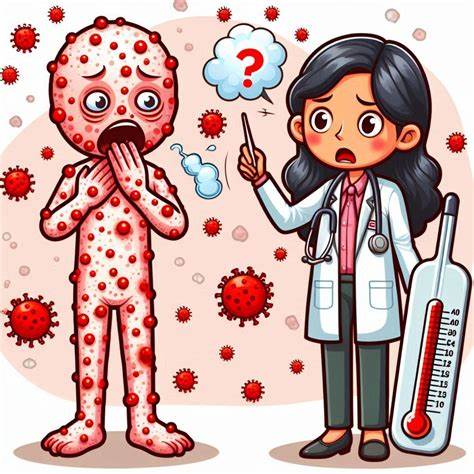Mpox

Mpox (monkeypox) is a viral disease caused by the monkeypox virus, a species of the genus Orthopoxvirus. The Mpox occurrence and symptoms:
In these challenging times, it’s essential to stay informed and take care of ourselves and each other. COVID-19, caused by the SARS-CoV-2 virus, has affected people worldwide, but together, we can navigate this pandemic with resilience and knowledge.
Millions of young people around the globe are facing similar uncertainties. While the pandemic has disrupted our lives, it has also shown our collective strength and adaptability. We’ve learned to connect virtually, support one another, and find joy in small moments.

If you have a weakened immune system due to a health condition or medication, take extra precautions:
Pregnancy adds complexity, but you can still stay safe:
Many people are still dealing with the impact of COVID-19 around the world, we’re all part of a global effort to overcome this pandemic. To emerge stronger, we all need to be responsible, compassionate, and resilient.

During challenging times like the pandemic is crucial. Follow the following practical tips to help you stay mentally strong and resilient:
Make regular phone calls or video calls to friends and family. Social connections, even virtually, provide emotional support and combat feelings of isolation1.
Arrange virtual social events—watch your favourite TV show together or play online games with friends.
Prioritise healthy habits: Eat nutritious meals, exercise, and get enough rest. These practices directly impact your mental health2.
Positive thinking matters too—acknowledge the good in your life, even amidst challenges.
Feeling Overwhelmed? It’s okay to feel overwhelmed at times. Be kind to yourself, and don’t hesitate to ask for support when needed. We’re all navigating this together, and small steps can make a big difference in maintaining our well-being.

Loneliness is a common feeling, especially during challenging times. Here are some practical strategies to help you cope with loneliness:
Having lots of friends and contacts doesn’t guarantee freedom from loneliness. Sometimes, it’s about improving our relationship with ourselves. Consider self-care activities that resonate with you—whether it’s enjoying background noise (like music or podcasts), going for a solo walk, or trying out arts and crafts. Remember, self-care looks different for everyone, so find what makes you feel good.
Feeling disconnected from those around you? Try opening up to someone you trust—a friend, family member, or colleague. You don’t need to do it face-to-face; a text message or social media chat works too. Sharing your feelings can create deeper connections. Tell your story, make friends safely, and get help.
Join a class, club, or group related to your interests. Whether it’s an art class, exercise group, or book club, these settings introduce you to like-minded people. Engage with friends locally and take part in MyHealthnet quizzes etc.
Remember, different approaches work for different people, so be patient with yourself. If something isn’t effective right now, try something else or revisit it later. Get help to find more ways to ease loneliness. Speak to your doctor and get the help required.

Comments